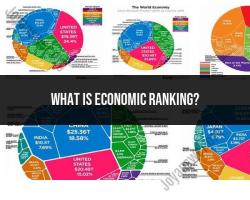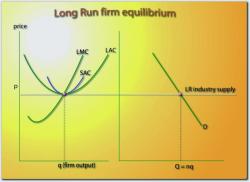What makes principles of Economics so special?
The principles of economics are unique and special for several reasons, reflecting the foundational concepts that govern economic behavior and decision-making. Here are some aspects that contribute to the uniqueness of principles of economics:
Universal Applicability:
- Principles of economics provide a universal framework for understanding economic phenomena. The principles apply across different countries, cultures, and time periods, offering a common language for analyzing economic issues.
Interdisciplinary Nature:
- Economics is inherently interdisciplinary, drawing insights from fields such as sociology, psychology, political science, and mathematics. This interdisciplinary approach allows economists to analyze complex issues and understand the interconnectedness of economic systems with other aspects of society.
Study of Scarcity:
- One of the foundational principles of economics is the concept of scarcity—the idea that resources are limited, and individuals and societies must make choices about how to allocate these resources. This fundamental economic problem is pervasive and shapes decision-making at both individual and societal levels.
Focus on Decision-Making:
- Economics is concerned with the study of choices and decision-making. Individuals, businesses, and governments face trade-offs and must make decisions based on rational behavior, considering costs and benefits.
Analytical and Predictive Tools:
- Economics provides analytical tools and models that enable economists to analyze and predict economic behavior. Concepts such as supply and demand, utility, and elasticity help explain how markets work and how individuals respond to changes in economic conditions.
Policy Implications:
- Principles of economics have direct policy implications. Economic theories and models inform policymaking at the local, national, and international levels. Policymakers use economic principles to design effective interventions and address economic challenges.
Dynamic and Evolving Field:
- Economics is a dynamic and evolving field that adapts to changes in the global economy, technology, and societal structures. New economic theories and models continually emerge to address contemporary challenges and phenomena.
Empirical Observation and Analysis:
- Principles of economics emphasize empirical observation and data analysis. Economists use real-world data to test theories, validate models, and make evidence-based predictions about economic trends.
Microeconomics and Macroeconomics:
- Economics is divided into microeconomics and macroeconomics. Microeconomics focuses on individual economic agents, such as consumers and firms, while macroeconomics examines the overall performance of the economy, including factors like inflation, unemployment, and economic growth.
Global Perspective:
- Economics provides a global perspective, recognizing the interconnectedness of economies around the world. Principles of international trade, exchange rates, and globalization are essential components of economic analysis.
Impact on Daily Life:
- Principles of economics have a direct impact on individuals' daily lives. Understanding economic concepts helps individuals make informed decisions about spending, saving, investing, and participating in economic activities.
In summary, the principles of economics are unique in their universal applicability, interdisciplinary nature, focus on decision-making, and their role in shaping policies and understanding economic phenomena at various levels of society. The principles provide a powerful framework for analyzing and interpreting the complex dynamics of human behavior in the realm of scarcity and resource allocation.
What distinguishes the principles of Economics from other foundational concepts?
The principles of Economics set themselves apart from other foundational concepts in several key ways:
1. Scarcity and Choice: Unlike many areas of study that might deal with limitless possibilities, Economics revolves around the central idea of scarcity. Resources are limited, and individuals and societies must make choices about how to allocate them efficiently. This fundamental principle underlies all economic analysis and decision-making.
2. Incentives and Trade-offs: Economic actors like individuals, firms, and governments respond to incentives. Prices, taxes, subsidies, and other economic factors influence their choices and behaviors. Understanding these incentives and the trade-offs involved in different decisions is crucial for comprehending economic phenomena.
3. Cost-Benefit Analysis: At its core, Economics is about optimizing choices by weighing the costs and benefits of different alternatives. This applies to individuals maximizing their utility, firms seeking profit, and policymakers aiming for efficient resource allocation.
4. Modeling and Prediction: Unlike some other foundational concepts, Economics relies heavily on models and simulations to understand complex economic systems and predict their behavior. These models, while not perfect, provide valuable insights into market dynamics, resource allocation, and potential outcomes of various policies.
5. Interdisciplinary nature: Economics draws upon and interacts with many other disciplines, including mathematics, statistics, psychology, sociology, and political science. This interdisciplinary approach helps paint a more comprehensive picture of economic phenomena and their impact on broader societal aspects.
Overall, the principles of Economics offer a unique lens through which to understand human behavior, resource allocation, and the functioning of societies. Their focus on scarcity, incentives, trade-offs, and quantitative analysis distinguishes them from other foundational concepts and provides valuable tools for decision-making at individual, firm, and policy levels.
Do you have any further questions about specific economic principles or how they compare to other areas of study? I'm happy to delve deeper and provide more details.












